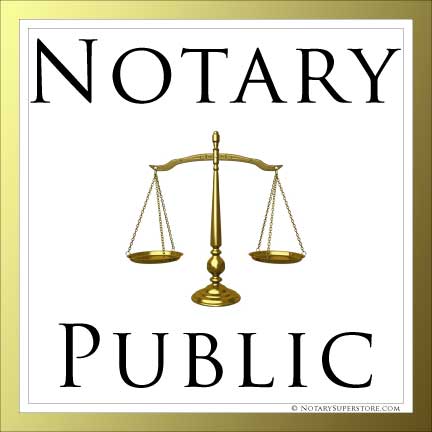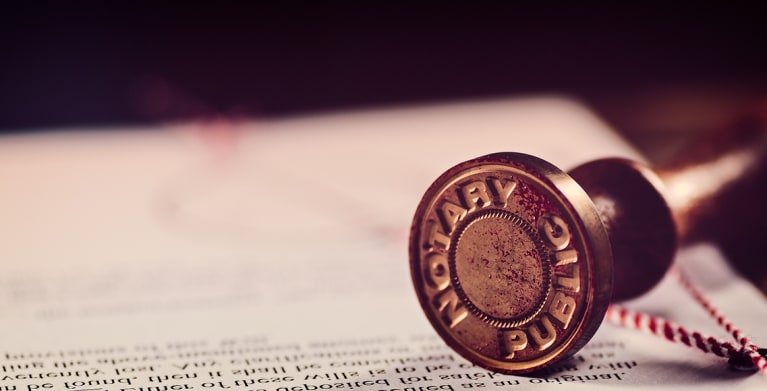Taking Care Of Deceased Estate Matters: Advice Through Legal Procedures
Taking Care Of Deceased Estate Matters: Advice Through Legal Procedures
Blog Article
Debunking Notarial Work: Streamlining the Duty and Importance of Notaries
In the complex internet of legal documents and confirmation, notaries stand as columns of assurance and credibility. Their role, usually shrouded in secret for several, brings significant weight in making sure the legitimacy and stability of essential documents. As guardians of validity and fact, notaries play a crucial part in our culture, yet their work is not always totally understood. By untangling the intricacies bordering notarial practices and shedding light on the importance of their acts, a clearer understanding emerges of the important function notaries play in upholding the fabric of lawful and contractual contracts.
The History of Notarial Job
How did notarial job advance gradually to end up being an integral part of lawful and service transactions? The background of notarial work go back to old civilizations, where scribes played an essential duty in taping important info and validating papers. As societies progressed, the need for a much more formalized system to guarantee the legitimacy of agreements developed. This brought about the development of notaries, individuals selected by the state to function as objective witnesses in lawful issues.
Throughout the Middle Ages, notaries obtained importance in Europe, with their features expanding to include composing legal files, accrediting signatures, and protecting records. The surge of global trade further emphasized the relevance of notarial work in confirming agreements and contracts throughout boundaries.
In the modern-day age, notaries remain to play an important role in legal and company deals by validating identifications, verifying the credibility of records, and protecting against scams. Their role in certifying the credibility of arrangements adds a layer of safety and count on to the ever-evolving landscape of business and legislation.

Tasks and Responsibilities of Notaries
Notaries play an important role in confirming the credibility of papers and the identity of signatories. One of their main responsibilities is to witness the signing of essential papers, such as wills, agreements, and acts, to guarantee that all parties are entering into contracts knowingly and willingly.
Moreover, notaries are entrusted with administering vows and affirmations, which are vital in lawful process and the execution of sworn statements. They accredit copies of initial files, offering guarantee to institutions that the duplicates hold true replicas of the originals. Notaries must maintain precise documents of all transactions they look after to guarantee transparency and responsibility. In general, the obligations and obligations of notaries are crucial in guarding the integrity and legality of different browse around these guys papers and transactions.
Notarial Certificates and Signatures
Exhibiting thorough attention to detail, notarial certifications and signatures serve as important elements in verifying the authenticity of legal records. Notarial certificates typically include important information such as the day of notarization, the names of the signatories, a summary of the file, and the notary's main seal. These certifications give a clear document of the notarial act, ensuring that the file can be conveniently recognized and mapped back to the notary who looked after the procedure.
Trademarks play a critical duty in notarial job, as they represent the agreement and authorization of the parties entailed. Notaries carefully witness the signing of records to validate the identification of the signatures and verify that they are signing of their very own free choice. By affixing their main seal and trademark to the record, notaries license that the necessary procedures have actually been followed which the document is valid and enforceable.
Basically, notarial certificates and trademarks are the characteristic of credibility in legal deals, providing guarantee to all events involved that the documents are genuine and binding.
Significance of Notarial Acts

Registration Refine Clarified
The notarization procedure commonly begins with the private providing the document to a notary public. When the identity is validated, the notary makes certain that the individual authorizing the paper Learn More does so willingly and without any browbeating.

Conclusion

Notarial certificates typically contain crucial details such as the day of notarization, the names of the notaries, a description of the file, and the notary's official seal. These certifications offer a clear document of the notarial act, ensuring that the paper can be easily identified and traced back to the notary that oversaw the procedure.
By fastening their official seal and signature to the document, notaries certify that the necessary procedures have actually been followed and that the file is valid and enforceable.
By verifying the identity of the signatories, validating their readiness to get in right into the arrangement, and accrediting the day and location of the finalizing, notaries play a critical role in supporting the legitimacy of legal papers.After the paper is authorized, the notary will fasten their official seal or stamp onto the record.
Report this page